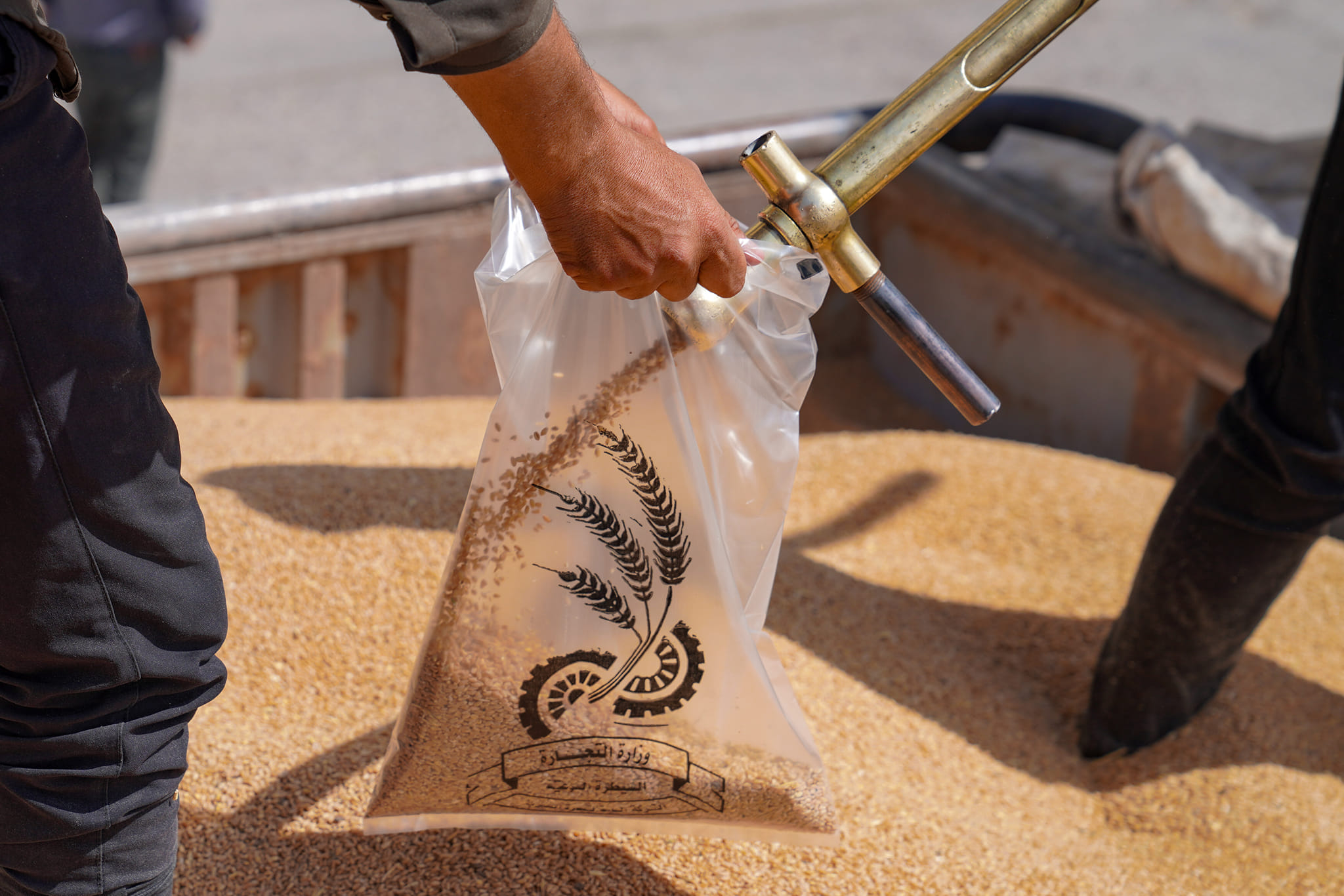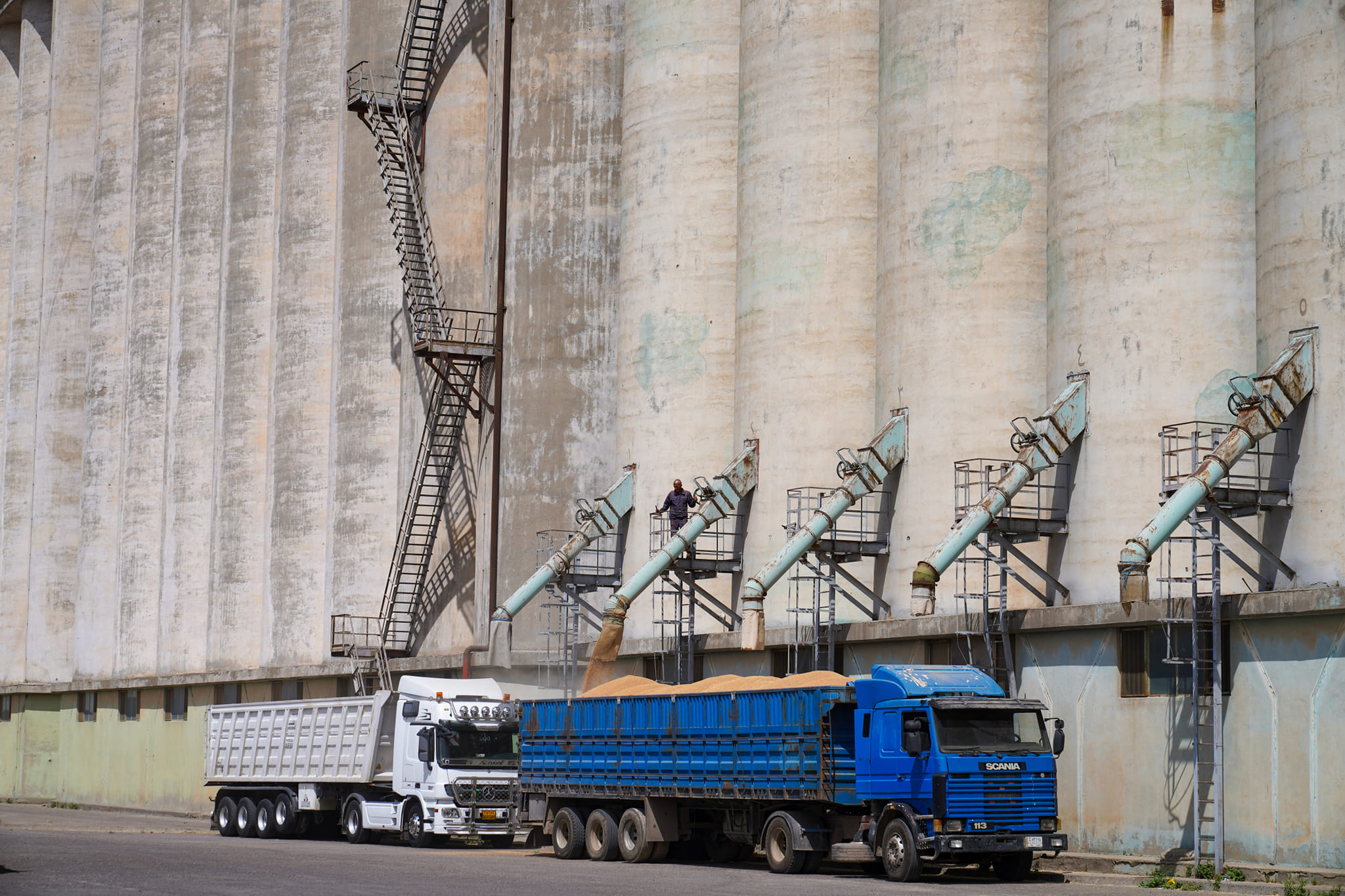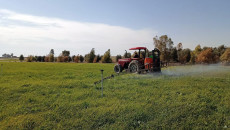Local officials affirmed Makhmur silo of Nineveh Province unable to receive the wheat crop from all the district’s farmers, forcing them either selling it at lower prices or transporting it to silos in other areas.
The process of receiving wheat from farmers in Makhmur district in Nineveh Governorate began on Thursday, May 15, and according to the Iraqi Ministry of Trade, it is expected to be the first governorate in Iraq in wheat production.
Muhammad Ali, a farmer from the Girdi Bago village in the Qaraj sub-district of Makhmur, told KirkukNow, “Our biggest problem is the inability of Silo Makhmur to receive our crops, so we are at a loss.”
Farmers in Qaraj district pay 50,000 Iraqi dinars IQD (USD32) to transport each ton of wheat by truck to Silo Makhmur, which is 15 kilometers away.
“If we have to transport wheat to other silos, for example to Tal Afar, the transportation cost will rise to 100,000 dinars per ton, which is a big cost, and if we sell it in the market we will have to sell it for 650,000 dinars per ton, which is an amount less than what the government pays, which is 850,000,” Ali added.
He planted an area of 10 hectares with wheat, and his production is close to 60 tons. He calls on the local authorities to receive their crops in Makhmur, “I am sure that the silo can receive the crops of all the farmers of the region, but the reason is due to the entry of large quantities of wheat from Erbil at the expense of the farmers of Makhmur.”
Iraqi farmers depend on the state in the production of grains, a policy criticized by experts as for years’ grains were stored in silos in vain and funds not allocated to pay farmers planning to sell their grains to traders and private silos as the demand is higher on wheat following Russia invasion of Ukraine, Europe's food basket.
The government receives wheat from farmers at an amount ranging between 500,000-850,000 Iraqi dinars IQD per ton ($350-600), depending on the quality of the wheat.
The Trade Ministry stores or buys produce from farmers and distributes it to mills in order to provide state-subsidized food rations and subsidized floor into markets as bread and rice make the main dish of the Iraqi cuisine.
The Agriculture Ministry supports farmers by providing harvesting tools, seeds, fertilizers and pesticides at a subsidized rate or for free while farms call for direct involvement of the state following scarcity of water, frequent waves of dust storms and unaffordable cost of fertilizers, pesticides and other necessities.

The volume of wheat production in the center of Makhmur district this year is estimated at about 80,000 tons, while the production of Qaraj sub-district alone is 150,000 tons, according to statistics obtained by the (KirkukNow) from the Makhmur Agriculture Department.
Marwan Hussein, Director of Makhmur Agriculture, said, “In all cases, we cannot receive the wheat crop from all the farmers... because the crops of three other districts and a number of villages are transported to Makhmur, so farmers are forced to transport the wheat to other silos in Nineveh Governorate or Sell it in the market.
There are 50,000 hectares of arable land in Makhmur, 19,000 of which are irrigated lands, distributed among 3,000 farmers.
Makhmur district is one of the disputed areas under the Iraqi constitution. It is located southeast of the city of Mosul. It is one of the districts rich in wheat production, as production this year reached 200,000 tons.
Makhmour District was administered by the Kurdistan Regional Government KRG after 2003, but the security and administrative was retaken by the Iraqi government following the events of October 16, 2017 when the Iraqi Security Forces ISF recaptured the disputed territories following the war against the Islamic State of Iraq and Syria ISIS.
The director of Makhmur Agriculture says that Silo Makhmur can receive about 180,000 tons of wheat this year, and a yard has been established in the Qaraj designated to receive approximately 50,000 additional tons.
During the past weeks, two million tons of wheat were received in the governorates of central and southern Iraq, and hundreds of thousands of tons are scheduled to be received in the northern governorates and the Iraqi Kurdistan Region IKR.
The Commerce Ministry expects farmers to produce seven million tons of wheat this year, which, according to Gar’awi, "is enough to achieve self-sufficiency.”
The director general of the General Company for Grain Trading said the company still has 1,7 million tons of wheat from last year to meet Iraq's needs for the next four months.






